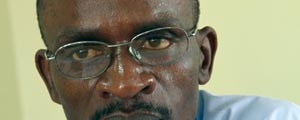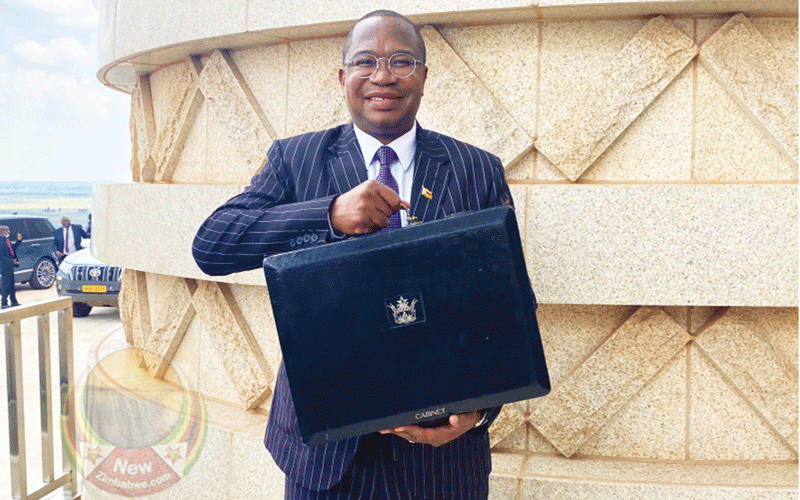
From Hwange National Park ecological disaster to Typhoon Haiyan in Phillipines to a new climate change deal, 2013 was the worst in global warming change and development progress.
Viewpoint by Wisdom Mdzungairi
Throughout 2013, the world focused attention on large-scale work to address climate change through sustainable development across the sectors. It is abundantly clear that without action to stop it, climate change threatens to roll back decades of development progress, and while everyone will be affected, the poor will suffer the most especially in the countryside.
As we mark exactly one month after the Warsaw climate conference, which brought world leaders from all corners of the earth there is nothing to show will power to mobilise action and ambition on climate change.
Nothing much was achieved as developed countries vacillated between signing the Kyoto Protocol and pouring money into the Green Fund to assist developing countries deal with effects of global warming.
This is important to us because 2013 was the worst in terms of global warming in which the month of October through November recorded the highest temperatures since 1850. The effects of global warming are very clear for everybody to appreciate. What is needed is to figure out how to deal with them going forward.
There were four major climate change conferences throughout 2013.
Our goal should be to end extreme poverty and promote shared prosperity. This must be achieved in such a way as to be sustainable over time and across generations. This requires promoting environmental, social and fiscal sustainability.
- Chamisa under fire over US$120K donation
- Mavhunga puts DeMbare into Chibuku quarterfinals
- Pension funds bet on Cabora Bassa oilfields
- Councils defy govt fire tender directive
Keep Reading
We need to secure the long-term future of our country and its resources so future generations do not find themselves in a wasteland.
After countries failed to strike a deal in Poland recently, the United Nations secretary-general Ban Ki-moon announced he would host a huge climate summit in September 2014.
It will be aimed at catalysing action by governments, business, finance, industry, and civil society in areas for new commitments and substantial, scalable and replicable contributions to the Summit that would help the world shift toward a low-carbon economy.
It is significant to state that this summit will come one year before we conclude a global climate agreement in 2015 through the United Nations Framework Convention on Climate Change (UNFCCC).
Sadly, the 2014 Climate Summit is not part of the negotiating process.
But by catalysing action on climate change prior to the UNFCCC in 2015, this will build a solid foundation on which to anchor successful negotiations and sustained progress on the road to reducing emissions and strengthening adaptation strategies.
I strongly believe that the post-2015 development agenda will most profoundly affect the least developed countries (LDCs), so it is essential that Environment, Water and Climate minister Saviour Kasukuwere pushes for a climate policy to have a greater say in what the goals look like.
Everybody who’s anybody in international development has been weighing in on another equally important issue, that of developing our country’s agenda to replace the Millennium Development Goals after they expire in 2015.
What is lacking so far from our country are ideas and opinions of people that will be most directly affected by the final outcome on a global stage. Far from being the helpless victims we are often portrayed as, LDCs must show strong moral and intellectual leadership going forward in international debates around climate change, trade, debt and other issues.
It is hoped that Zimbabwe will in the coming year produce a comprehensive climate policy document, that will support all development efforts by all government departments. The delay in coming up with this important will only mean all development efforts will remain unco-ordinated.
This document will be an important milestone to mobilise political commitment for all other development programmes, as well as to spur enhanced economic growth and build climate resilient communities.
Also, there should be closure in the ecological disaster that occurred as a result of the cyanide poisoning in Hwange National Park which claimed over 115 elephants and scores of other game species. No doubt communities around and their domestic stock will be affected in the long term, hence government must ensure detoxication of the areas affected.
It is important that government and the stakeholders in the environment sector redefined the development strategy based on principles of true country ownership, equity, the obligation to honour commitments and mutual learning.
The uninitiated may not understand climate change, but they feel them daily hence authorities must innovate, scale-up, cooperate and deliver concrete action that will put the country on track for an ambitious legal agreement through the UNFCCC process.
In the New Year, we must be determined to come up with a concrete response to mitigating and adapting to climate change and building investment in resilience through urban planning, sustainable energy and transportation, energy efficient construction, integrated water management, disaster risk management, and climate-smart agriculture.
As 2013 turns into 2014, we must do all we can to play our part and encourage others to step up.











